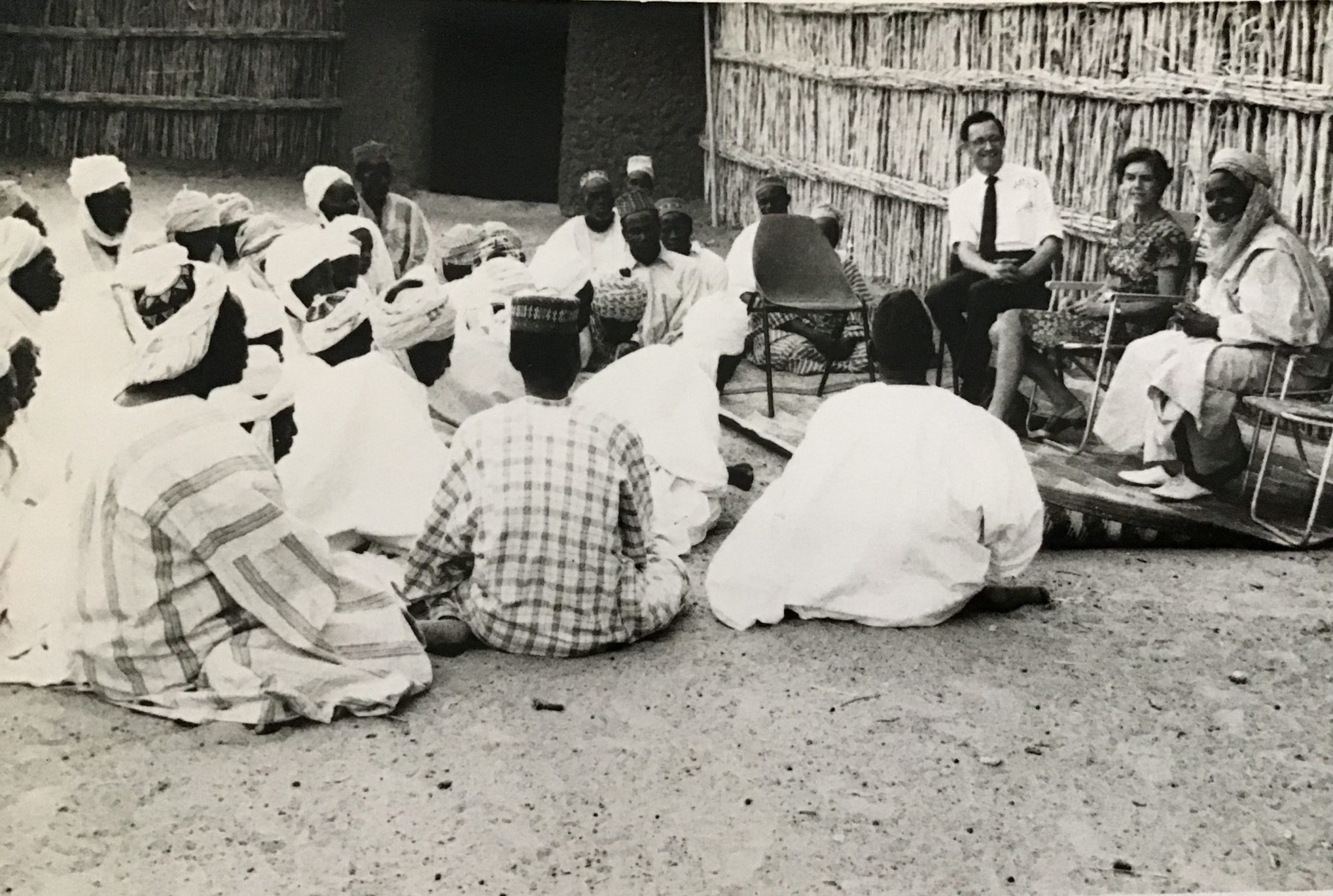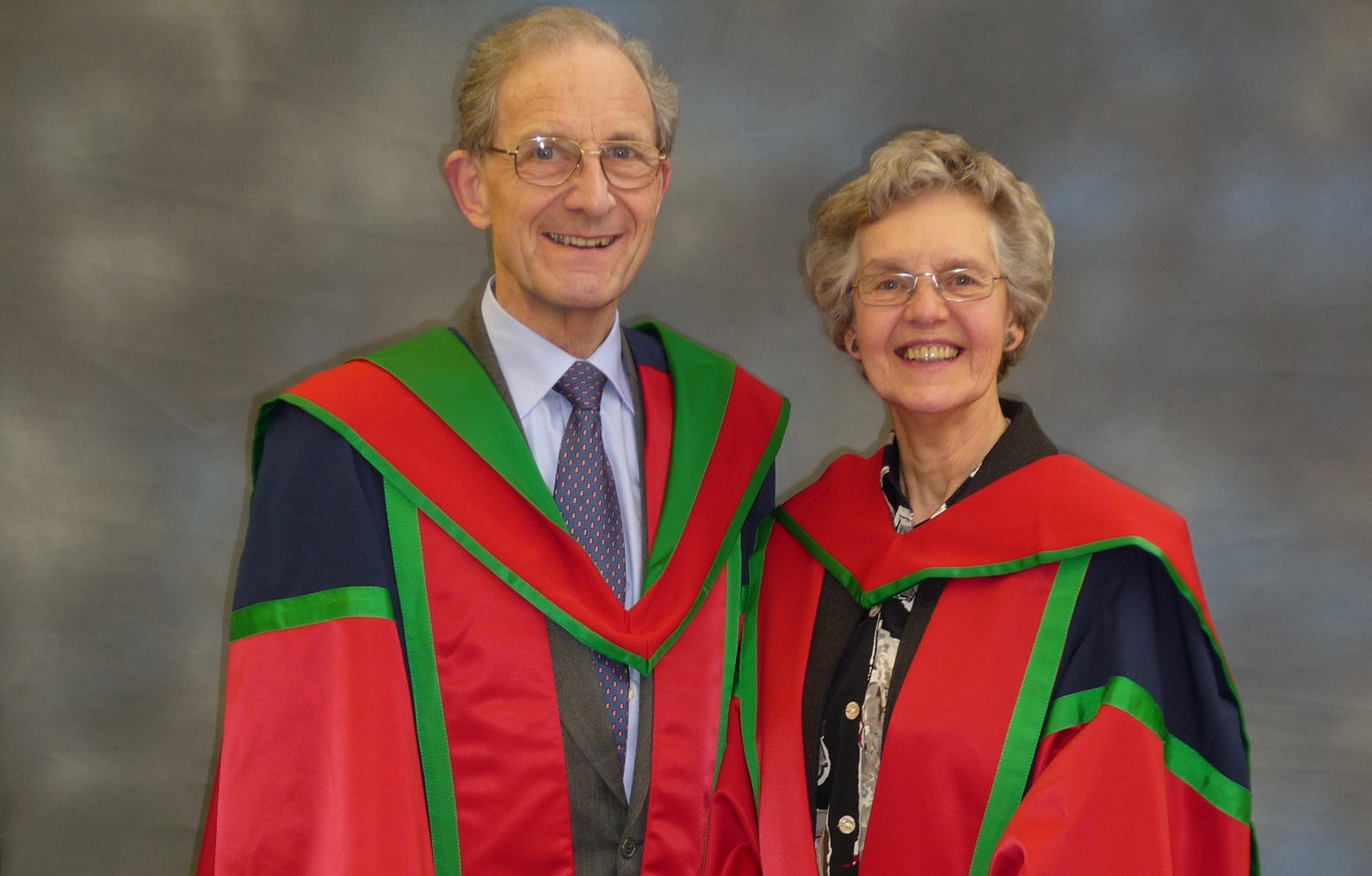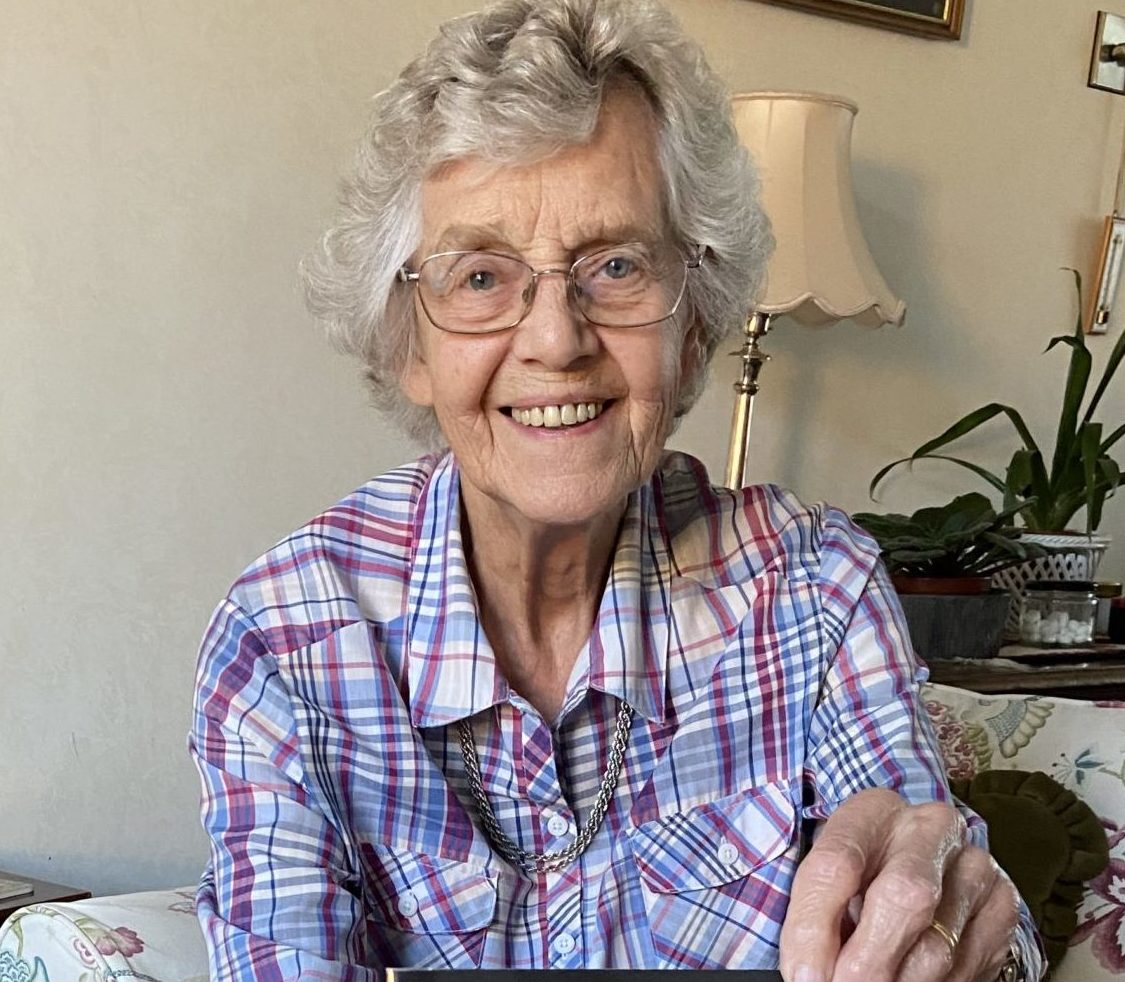This statement by Judith Henderson, who recently was awarded the Queen’s Award for voluntary service, is merely a snapshot into her extraordinary life which has involved volunteering for Initiatives of Change (IofC) for over 70 years. Her story is one which speaks perfectly of the necessity to trust yourself and follow your beliefs to lead you to the most fulfilling experiences that bring positive change in the world.
“I met IofC when I was just three years old” said Judith, when she sat down with Barbara Down to discuss her life’s work with the organisation. Her parents were introduced to IofC, which was at the time known as The Oxford Group and later Moral Re-armament (MRA), at a house party and it was life changing for them, as it repaired their faltering marriage. It quickly became a main focal point within Judith’s life. She grew up with IofC as a consistent force throughout her childhood.
At the age of 18, like many young adults, she found herself at a crossroads. Having just left school she was faced with an important question – what was she going to do with her life and how was IofC going to be involved?
Judith wasn’t sure what she should do but was very sure what she did not want to do – live in London, look after other people’s children, or cook. Her godfather soon became concerned Judith was not taking her life seriously and found a suitable job for her to go into which did appeal to Judith, but around the same time, she was invited by a family, also involved with MRA, who had need of help in London. But working for this family required her to do all the things which she swore she wouldn’t – live in London, look after children, and cook.
By taking time to reflect and listen to God, Judith made her decision. “After much wrestling, I was absolutely clear. I should be with that family.” This led Judith to spending a year and a half with them and their children, whom she came to love, who taught her that London living was not at all bad and led her to discover cooking. It was during this time Judith realised that cooking was her passion and what she was meant to do with her life.
Judith was then asked to go and cook in one of the MRA centres, which she happily accepted. During that time, she had the conviction to pursue training in the culinary arts. She began writing to domestic science colleges, which all offered her places, but she didn’t feel they were right. At that moment a friend sent her the prospectus for the world-renowned Cordon Bleu School in London, but she couldn’t afford it. Another friend, who was a school cook and part of the MRA network, offered to give Judith the money for the course from her own savings. Judith experienced the extreme kindness and generosity of someone within the organisation.
Three months later, Judith finished her training and was offered a job teaching at the Cordon Bleu finishing school in Windsor. Here, she spent the next year teaching the likes of debutantes, which included two German Princesses. From teaching, she went on to become a Chef at the Cordon Bleu restaurant in London in 1952 where she stayed and worked for two years. Throughout these years, Judith’s love for cooking continued to grow. She spent the next few years working in London, Paris and every summer at the Caux Conference Centre in Switzerland.
Judith then faced another major crossroads when she was invited by one of those responsible for MRA in England to join a campaign in India which aimed to share the ideas of MRA and was destined to eventually travel around the world. She took a few days to ask God for guidance before coming to conclusion this was not the right path for her. A few weeks later, she was invited to Nigeria, and she knew this was the right place to go. Had she gone to India; she says she “would have been going in the wrong direction”.
Soon, Judith found herself in Nigeria helping to look after an MRA centre. Amongst the many friends she made there she got to know many of the market women, forming an especially close bond with Mrs. Fashina who had been leader of the Lagos market women. Here, she had a good link with the catering school right across from the MRA centre as well as showing MRA films to schools.
Soon, Judith’s life would change again. This time for love. Gerald Henderson, who she knew slightly due to his work for many years in MRA and especially Africa, had the thought in his morning quiet time that Judith Sykes was the women he was meant to marry. Amazingly, Judith had awoken in the middle of the night at about the same time with the astonishing thought: “If Gerald Henderson ever proposes to you, say yes! – And now forget it.” They met unexpectedly at a conference at Caux. Without really knowing each other, they got engaged, fell in love, and then spent almost 50 years together. They both trusted their guidance and the sense that they were meant to be together.
Judith and Gerald went back to Nigeria together. They travelled widely in the country. At one point, they with a Nigerian colleague were invited by the Emir of Kano to take the film Freedom, translated into the Hausa language, to seven of the other emirates in the north of the country- an unforgettable experience. The MRA films were greatly used in Nigeria. Another group who benefited from them were the Nigeria police, who sent their top trainees each week to see these films as part of their training. After six years they returned to England and helped to look after the MRA conference centre in Tirley Garth, Cheshire. While there, they had the conviction to move to Liverpool. It was the 1980s and the Liverpool riots were in full swing, the city grappling with racial divisions and inequality. Judith and Gerald moved and threw themselves straight into the life of the city. They were greatly helped by Alfred Stocks, chief executive of the city who gave them much encouragement and sound advice. Gerald became a member of the community relations council and the black police association. They worked closely with other cities in Britain and worldwide under the title Hope in the Cities. An important link was with Richmond, Virginia, as there were historical links with relation to slavery. Judith and Gerald hosted several delegations from Richmond in their home and spent some time there themselves.

Judith and Gerald in Northern Nigeria with Alhaji Chigari, local chief of Gabasawa and his councillors. Here, they can be seen having a discussion about the work of MRA, translated by the Chief. They met while taking the film Freedom to the seven Emirs in their respective States.
Judith became very involved with the influx of asylum seekers who found themselves in Liverpool. From hosting them in her own home to eventually looking after three families from Kosovo, Iran, and Albania, Judith became involved with Asylum Link Merseyside (ALM) which she has now been a member of for over 20 years.
Judith’s work with asylum seekers slowed when Gerald was sadly diagnosed with Alzheimer’s, but this didn’t stop them from doing what they could to help. “We decided we could raise money for them and collect clothes from our local church and other local organisations. One winter we took five carloads of warm clothes to them. When Gerald got ill, I found it difficult to find things for him to do, but I realised he and I could recycle cards together. Gerald enjoyed it and did it well. We sold them at 50p a card. Wherever we went we took our box of homemade cards with us and by the time he died I discovered that we had raised £1200 which we gave to two charities. One was Asylum Link Merseyside and the other was one of the dementia charities. I am still doing it now.”
This window into Judith Henderson’s life is a brief snapshot into the amazing things she has achieved and accomplished. Her and Gerald’s efforts did not go unrecognized. One of their proudest moments was when she and Gerald were approached by the Vice Chancellor of Liverpool Hope University and made honorary fellows for the reconciliation work, they had been doing both here and abroad. But this is not the only recognition she has received. Two days before sitting down with Barbara to have this interview, Judith was awarded, along with 80 other volunteers, the Queen’s award for outstanding contributions to voluntary service. This is a joint MBE for voluntary groups which she received for her work with Merseyside asylum seekers.
Judith Henderson represents the incredible things which can happen when you step back and listen to your faith, intuition, or your gut feeling, whichever is calling you. To all future changemakers Judith says, “God’s plan for one’s life is by far the one that is most satisfying. Go for it, in teamwork with others.”

Judith and Gerald Henderson were awarded an honorary fellowship by Liverpool Hope University for their combined contributions to peace and reconciliation through their lifelong work internationally with Initiatives of Change and for their local work in Hope in the Cities and Asylum Link Merseyside.

In her interview, Judith showed us the programme of the event ceremony and the photo she keeps on her side.